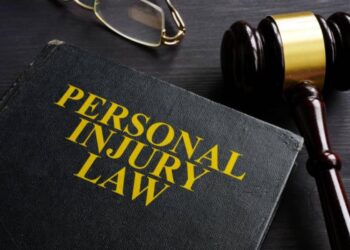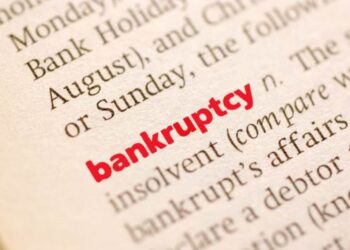Suffering an injury due to someone else’s negligence is a painful and stressful experience, but the process of filing and negotiating a personal injury claim can also feel overwhelming. One of the most important aspects of this process is ensuring that you receive fair compensation for your injuries. However, many claimants unknowingly make mistakes that can significantly reduce their compensation.
This article will walk you through some of the most common mistakes made during the personal injury claim process and, more importantly, how to avoid them to maximize the amount you receive.
Failing to Seek Medical Attention Immediately
One of the most crucial steps after any injury, regardless of how minor it may seem, is to seek medical attention immediately. Many people delay medical care if their injuries don’t seem severe at first, assuming that they’ll heal on their own. This can be a major mistake.
Why it’s a problem:
Insurance companies often use any delay in seeking medical attention as evidence that your injuries weren’t severe or may have been caused by something other than the accident. If you don’t see a doctor right away, you leave room for the opposing party to argue that your injuries are unrelated to the incident or were exaggerated for the purpose of securing higher compensation.
How to avoid this mistake:
Even if you feel fine after an accident, it’s important to get checked out by a healthcare professional as soon as possible. Some injuries, such as concussions, whiplash, or internal injuries, may not show symptoms immediately but could worsen over time. Medical documentation also serves as an official record of your injuries and their direct link to the incident, which is critical for your claim.
Not Following Medical Advice
After seeking medical attention, it’s vital that you follow your doctor’s advice and treatment plan closely. Some claimants fail to do so, thinking they can skip appointments or discontinue treatment when they start to feel better. This can be detrimental to your case.
Why it’s a problem:
Insurance companies and defense attorneys will scrutinize your commitment to treatment. If you stop going to medical appointments or don’t follow through with the prescribed care, they may argue that your injuries were not as serious as claimed or that you failed to mitigate your damages. This can reduce your compensation or even lead to a denial of your claim.
How to avoid this mistake:
Stick to the treatment plan provided by your healthcare professional, including attending all follow-up appointments, therapy sessions, and completing any prescribed rehabilitation. If you have concerns about your treatment, talk to your doctor rather than discontinuing care on your own.
Giving a Recorded Statement to Insurance Companies Too Soon
After a personal injury, you may be contacted by the at-fault party’s insurance company. One of the first things they might ask for is a recorded statement about the accident. While this may seem like a reasonable request, providing a recorded statement too early can hurt your case.
Why it’s a problem:
Insurance adjusters are trained to ask questions in ways that can minimize the at-fault party’s liability. Any statements you make, even seemingly harmless ones, can be used against you later to argue that the accident wasn’t serious or that you were partially at fault. Additionally, your understanding of the full extent of your injuries might not be clear at the time of the statement, which could lead to you unintentionally downplaying your condition.
How to avoid this mistake:
You are not legally obligated to provide a recorded statement to the insurance company. Before speaking to any insurance adjuster, consult with your attorney, who can guide you on what to say and how to protect your interests. If you do need to provide a statement, have your lawyer present to ensure that your rights are protected and that you don’t inadvertently harm your claim.
Settling Too Quickly
In the immediate aftermath of an accident, you may feel pressure to accept the first settlement offer that comes your way, especially if medical bills and other expenses are piling up. However, settling too quickly is one of the most common and costly mistakes.
Why it’s a problem:
The first settlement offer from the insurance company is often much lower than what you deserve. Insurance companies aim to settle claims quickly and for as little money as possible. If you accept a settlement before fully understanding the extent of your injuries and long-term medical needs, you may be forfeiting a significant portion of the compensation you’re entitled to.
How to avoid this mistake:
Don’t rush to accept the first offer, no matter how tempting it may seem. Wait until you’ve reached what’s called “maximum medical improvement” (MMI), meaning you’ve completed treatment and have a clear understanding of your long-term prognosis. Work with your attorney to evaluate the full value of your claim, including future medical expenses, lost wages, pain and suffering, and any other potential damages.
Posting About the Accident or Your Injuries on Social Media
Social media has become an integral part of daily life for many people, but sharing information about your accident or injuries online can seriously damage your personal injury claim.
Why it’s a problem:
Insurance adjusters and defense attorneys often monitor claimants’ social media profiles for evidence they can use against them. Even seemingly innocent posts, such as a photo of you at a social event or an update about feeling better, can be misconstrued to argue that your injuries are not as severe as claimed. A single post could lead to the insurance company devaluing your case or even denying your claim altogether.
How to avoid this mistake:
It’s best to refrain from posting anything about the accident, your injuries, or your recovery process on social media until your claim is resolved. Avoid sharing photos, status updates, or check-ins that could be interpreted negatively. Consider setting your profiles to private, but remember that even private posts can be subpoenaed in legal proceedings. Discuss your social media activity with your lawyer, who can advise you on how to protect your claim.
Failing to Document Everything
Proper documentation is critical in a personal injury case, but many claimants overlook the importance of keeping detailed records.
Why it’s a problem:
Without thorough documentation, it can be difficult to prove the extent of your injuries, the financial impact of the accident, and the liability of the other party. Lack of proper evidence may weaken your case and lead to a lower settlement or even a denial of your claim.
How to avoid this mistake:
Keep a detailed record of everything related to your injury and recovery. This includes:
- Medical records: Keep all medical bills, doctor’s notes, test results, and treatment plans.
- Photographs: Take pictures of your injuries, property damage, and the accident scene.
- Journals: Maintain a journal documenting your pain levels, recovery progress, and how the injury has impacted your daily life.
- Receipts: Save receipts for all out-of-pocket expenses related to the accident, such as transportation to medical appointments, prescription costs, and any modifications needed for your home or vehicle.
Not Consulting an Experienced Personal Injury Lawyer
Perhaps the most significant mistake people make in personal injury cases is failing to seek legal representation early in the process. While some people believe they can handle a claim on their own, the expertise of a personal injury attorney is invaluable.
Why it’s a problem:
Without a lawyer, you may not fully understand the value of your claim, and insurance companies will take advantage of that lack of knowledge. They are more likely to offer a lower settlement to an unrepresented claimant, knowing that the individual may not be aware of the full range of damages they are entitled to. Moreover, navigating the legal complexities of a personal injury case without expert guidance can lead to mistakes that harm your case.
How to avoid this mistake:
Consult a personal injury lawyer as soon as possible after the accident. A skilled attorney will help you navigate the legal process, protect your rights, and ensure that you receive fair compensation for your injuries. Most personal injury lawyers work on a contingency basis, meaning they only get paid if you win your case, so there’s little financial risk in seeking professional help.
Conclusion
The steps to maximize your personal injury compensation require careful attention to detail and a strategic approach throughout the claim process. By avoiding common mistakes such as delaying medical care, settling too quickly, or failing to document key details, you can significantly improve your chances of receiving the compensation you deserve. Most importantly, having an experienced personal injury lawyer by your side ensures that you’re well-equipped to navigate the legal system and secure the best possible outcome for your case.










